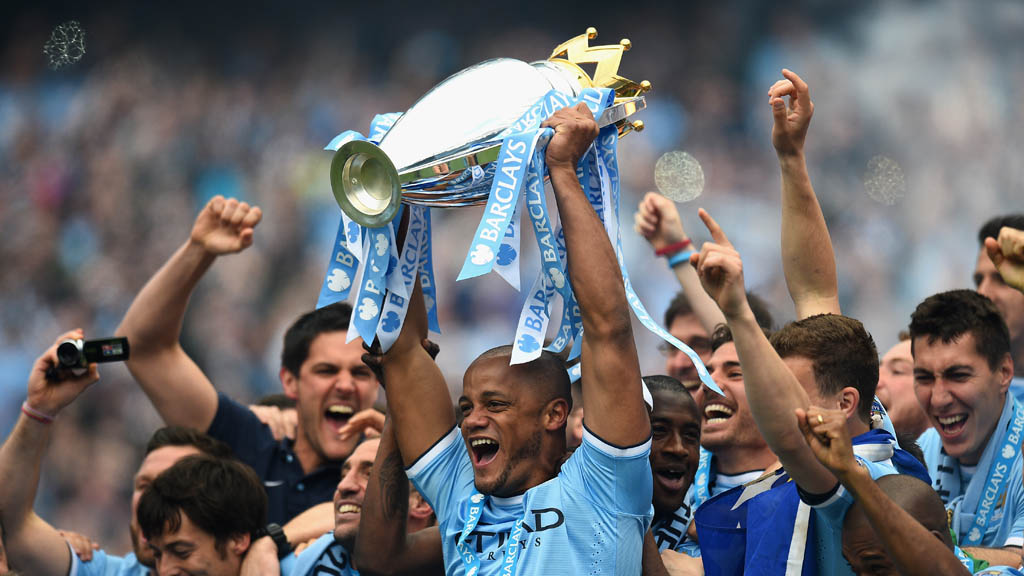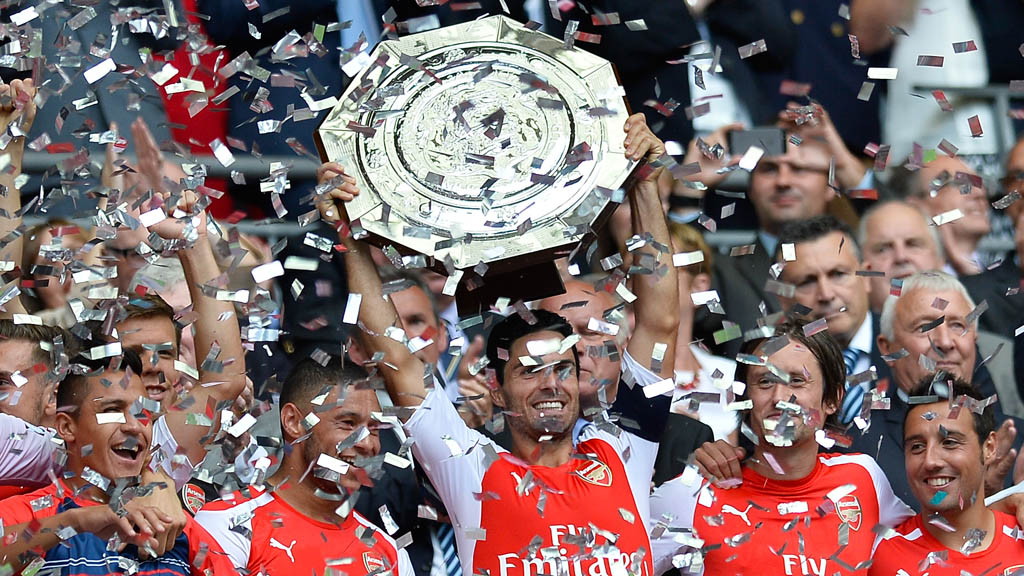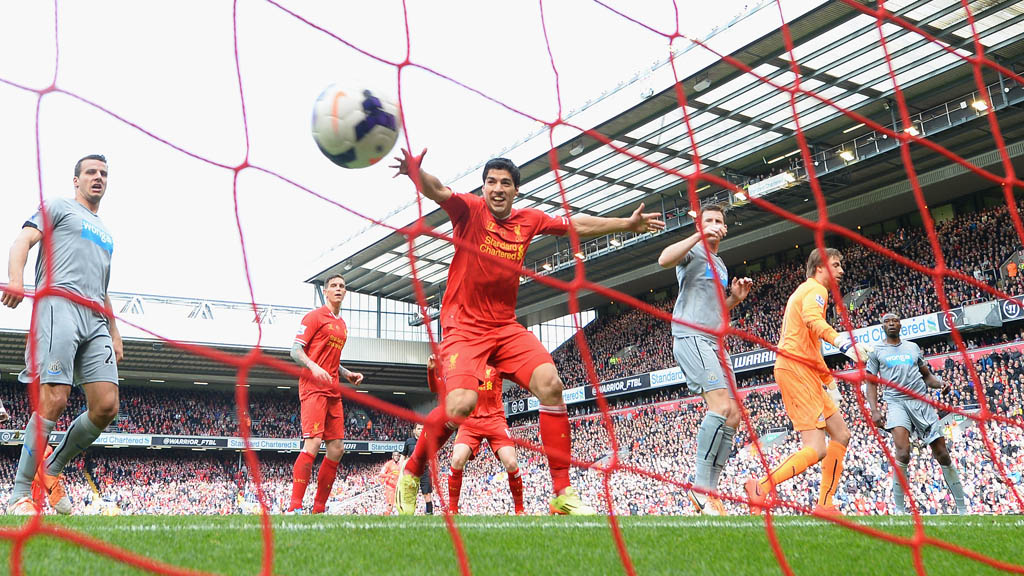Who will win this season’s Premier League title tussle?
This weekend sees the start of the 2014-15 Premier League season – and with around £600m spent on transfers this summer, there’ll be some new faces on show. Malcolm Boughen reviews the prospects.

It’s back – and this year it seems it’s hardly been away.
Although the Premier League season ended on May 11 – with Manchester City reclaiming the title after holding off a spirited Liverpool challenge – the close season has been filled with football.
The World Cup, of course, dominated the summer, with the now-usual disappointment for England, but a number of impressive individual performances and an outstanding team effort from the deserved winners, Germany.
Even in the month since the end of the carnival in Brazil, though, there’s been more than enough to keep footie fans drooling in anticipation of the big Premier League kick-off this weekend: the arrival of Louis Van Gaal at Old Trafford, exciting signings like Diego Costa at Chelsea and Alexis Sanchez at Arsenal and an increasingly high-profile pre-season, culminating in Arsenal’s footballing lesson for Manuel Pellegrini’s City in the Community Shield at Wembley last weekend.

So what can we expect from the season ahead? Plenty of excitement certainly. Last year’s events demonstrated that on the day any result is possible in any game. But in the end, quality – and wealth – will tell.
Tough at the bottom
A projection by Bloomberg Sports – world leaders in sports analytic technology – suggests that this year’s contest could come down to a two-horse race between Manchester City and Chelsea, with City narrowly favoured to hold on to the title.
But what is perhaps most interesting is that there are only seven teams given ANY chance of finishing in the Champions League places this season – with the other 13 mathematically facing far more chance of being drawn into a relegation struggle than challenging for the top.
Bloomberg explains that its “power ratings” are based on performances in previous seasons, supplemented by the additional value each club has gained from the transfer window. It then runs computer simulations of every match – not just once but 100,000 times for each – to provide the most accurate-possible projection of where each team will finish.
Of course, not even the most efficient computer can correctly predict the result of every match (and Bloomberg’s projections will be updated throughout the season to take into account changing form, injuries and remaining fixtures) – but taken over a season you can expect a pretty reliable picture.
And few would challenge the seven teams expected to fill the top slots – Manchester City, Chelsea, Arsenal, Manchester United, Liverpool, Tottenham and Everton.
City – restricted in Europe by UEFA’s Financial Fair Play regulations – have added talent in all areas to their already world-class squad. But Chelsea’s capture of Diego Costa and Cesc Fabregas among others has enabled Jose Mourinho to re-fashion his team much more to his liking. An exciting duel seems guaranteed throughout the season.
Arsenal, too, have pushed the boat out this summer, with Alexis Sanchez coming in from Barcelona for £35million. And, like Chelsea, they’ve filled important gaps in their squad and could be ready to mount a realistic challenge to the two favourites.
A better season seems certain for United, but Louis Van Gaal could take time to shape the side he wants and a Champions League place could be the best that can be achieved at Old Trafford.

And what of Liverpool?
The biggest spenders in the Premier League over the summer so far, they’ve famously plundered Adam Lallana, Dejan Lovren and Rickie Lambert from Southampton. But the fear is that their season could be defined by the man who has left. Luis Suarez is seen by many as more trouble than he’s worth (£75m, according to Barcelona) but his sublime footballing talents are sure to be missed at Anfield.
Everton and Spurs will again be hanging on to the coat-tails of the Big Five – ready for any slip to mount their own challenge. But the Europa League and the other cup competitions could offer their best chance of silverware.
Time was when the teams promoted from the Championship seemed automatically set for an immediate return the next season. But – as we found earlier this year – that has not happened since 1998, and in more than half of the 22 seasons since the Premier League was formed only one of the three promoted teams has been relegated.
So fans of Leicester, Burnley and QPR will go into the new season with every hope of staying up – though they will have to get used the fact that they’re almost certain to lose more games than they win this time around.
But looking at the teams outside the top seven, it’s possible to make a case that any of them – if lack of luck is added to lack of talent – could face the drop.
Take last season: Cardiff had come up as champions, Norwich had spent big in pre-season and Fulham had been one of the fixtures of the Premier League for more than a decade. They all start this season in the second tier.
So, could Hull – distracted by the Europa League – face the risk of second season syndrome? Crystal Palace – after a good debut season – have lost manager Tony Pulis before a ball has been kicked.
Could Aston Villa – with a recent record of under-achievement and ownership problems – finally dip beneath the radar? How about Swansea, who have lost more players than they might have wished in pre-season? Or Southampton – mightily impressive last time round, but almost unrecognisable after their departures. Or West Brom, who only just survived last time? The list goes on.
Alex Ferguson famously talked of “squeaky bum time” at the business end of a tough season. But it’s unlikely to take more than a few weeks before several Premier League managers – and their bosses – start shifting uneasily in their seats.